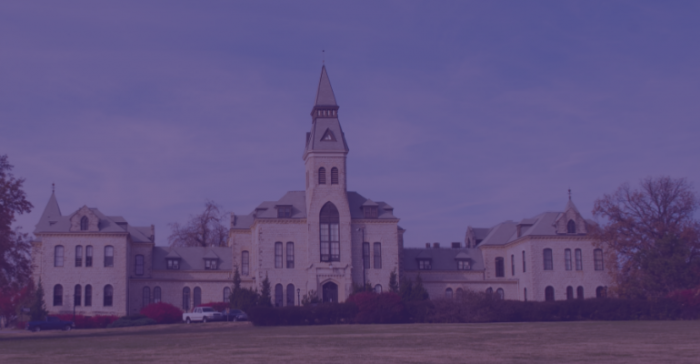Kevin Moluf, Kansas State University Pollution Prevention Institute Intern Program, September 14, 2017
The Kansas State University Pollution Prevention Institute Intern Program will conclude its twelfth year on Friday, September 15. Throughout the life of the program, recommendations to more than 43 institutions from the program’s 90 interns stood to realize collective industry savings of more than 80,500 MWh of electricity and $12.5 million.

The intern program is run through the Pollution Prevention Institute, a project branch under Kansas State University’s Engineering Extension that also operates the Kansas Energy Program and the Kansas Small Business Environmental Assistance Program. By linking host industries with interns from engineering and environmental science backgrounds, the program seeks to identify and implement projects that will reduce or eliminate sources of energy and water use, air emissions, hazardous and solid waste, water contaminants, and employee risk. Hosting an intern provides companies with a chance to tackle projects that nobody otherwise might have time to pursue or that might be ignored as part of day-to-day operations. Spending 11 weeks on-site allows the intern to delve deeper into systems and collect more credible data to convince companies to implement projects. Over this past summer, eight students from engineering and environmental science worked with supervisors at their host companies for 11 weeks to research projects that reduce industrial emissions and wastes and conserve natural resources. This year’s interns researched options for controlling open water flows, cycling of cooling water, upgrading ovens and water heaters, recycling wood and plastic waste, and updating lighting fixtures. Several interns also completed a classic project by auditing the compressed air lines for leaks in their facilities and writing procedures for a proactive leak maintenance program. If these projects are implemented, they will yield an estimated combined savings of 2,800 MWh electricity, 54 million gallons of freshwater, 30 thousand therms of natural gas, 1,354 tons of solid waste, and a total greenhouse gas reduction of 5,400 metric tons of carbon dioxide equivalent.
As part of the program requirements, the interns will present their findings to the EPA on Friday, September 15, from 10 a.m. to 3 p.m. (CDT). Interested participants can view the agenda and join via web conference or phone by following the instructions at http://www.sbeap.org/node/601.
[mks_button size=”medium” title=”Join the PPI Presentations Virtually on Sept 15 Here” style=”squared” url=” https://ksu.zoom.us/j/473472247” target=”_self” bg_color=”#8224e3″ txt_color=”#FFFFFF” icon=”” icon_type=”” nofollow=”0″]
